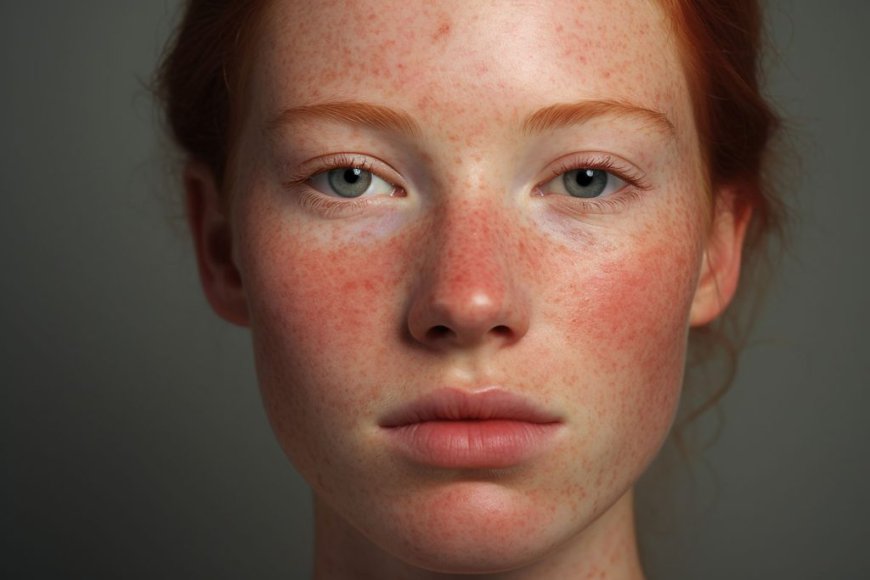Rosacea: Clear Your Skin and Boost Your Confidence

Rosacea is a common yet often misunderstood skin condition that affects millions of people worldwide. Characterized by facial redness, visible blood vessels, and bumps that resemble acne, rosacea can lead to significant distress and embarrassment. While there is no cure for rosacea, various treatment options and lifestyle changes can help manage symptoms and minimize flare-ups. This article explores the causes, symptoms, and effective management strategies for Rosacea Treatment in Dubai, empowering individuals to reclaim their skin and confidence.
Understanding Rosacea
Rosacea typically affects adults between the ages of 30 and 60, though it can occur at any age. It is more common in individuals with fair skin, particularly those with a Celtic heritage. The exact cause of rosacea remains unclear, but it is believed to involve a combination of genetic, environmental, and inflammatory factors. Common triggers include sun exposure, stress, hot or cold weather, spicy foods, alcohol, and certain skincare products.
Recognizing Symptoms
The symptoms of rosacea can vary significantly from person to person, but they typically include:
-
Facial Redness: This is often the first noticeable sign, appearing as a persistent flush or redness across the cheeks, nose, forehead, and chin.
-
Bumps and Pimples: Many people with rosacea develop small, red, pus-filled bumps that resemble acne. These may be accompanied by a burning or stinging sensation.
-
Visible Blood Vessels: Over time, small blood vessels may become visible on the surface of the skin, contributing to the overall redness.
-
Thickened Skin: In some cases, particularly in men, rosacea can cause thickening of the skin, especially on the nose, leading to a condition known as rhinophyma.
-
Eye Irritation: Ocular rosacea affects the eyes and eyelids, leading to symptoms like dryness, redness, and a gritty sensation.
Diagnosis and Consultation
If you suspect you have rosacea, consulting a dermatologist is crucial for an accurate diagnosis. A dermatologist will perform a thorough examination of your skin and may ask about your medical history and any symptoms you’re experiencing. In some cases, a skin biopsy may be necessary to rule out other conditions.
Treatment Options
While there is no definitive cure for rosacea, several treatment options can help manage symptoms and improve the skin's appearance. These treatments may include:
-
Topical Medications: Prescription creams or gels containing azelaic acid, metronidazole, or ivermectin can help reduce inflammation and redness.
-
Oral Medications: In moderate to severe cases, dermatologists may prescribe oral antibiotics like doxycycline or tetracycline to help reduce inflammation and treat bumps and pimples.
-
Laser Therapy: Laser treatments can effectively reduce redness and visible blood vessels by targeting and collapsing the dilated blood vessels beneath the skin's surface. This treatment often requires multiple sessions for optimal results.
-
Intense Pulsed Light (IPL) Therapy: Similar to laser therapy, IPL uses light to target redness and broken capillaries. It is often less invasive and can provide significant improvement in skin tone.
-
Skincare Products: Gentle skincare is essential for managing rosacea. Avoid harsh scrubs and exfoliants, and look for products labeled as fragrance-free and non-comedogenic. Ingredients like niacinamide and hyaluronic acid can be soothing and hydrating.
-
Lifestyle Modifications: Identifying and avoiding personal triggers can help prevent flare-ups. This may include wearing sunscreen daily, avoiding extreme temperatures, managing stress, and maintaining a balanced diet.
Home Remedies and Natural Treatments
In addition to medical treatments, several home remedies may help alleviate symptoms of rosacea:
-
Green Tea: Applying green tea extracts or creams containing green tea can help reduce redness and inflammation due to its antioxidant properties.
-
Aloe Vera: Known for its soothing properties, aloe vera can help calm irritated skin. Applying pure aloe vera gel to affected areas may provide relief.
-
Chamomile Compress: Chamomile has anti-inflammatory properties that may soothe irritated skin. Applying a cool chamomile tea bag or compress to the affected areas can provide comfort.
-
Coconut Oil: As a natural moisturizer, coconut oil can help hydrate dry, flaky skin associated with rosacea. However, be cautious, as some individuals may react negatively to it.
Managing Flare-Ups
Despite best efforts, flare-ups may still occur. When this happens, it is essential to remain calm and take steps to manage symptoms:
-
Avoid Triggers: Keep a diary to track flare-ups and identify potential triggers. This information can help you avoid them in the future.
-
Gentle Cleansing: Use mild, fragrance-free cleansers to avoid further irritating the skin.
-
Cool Compresses: Applying a cool compress to inflamed areas can help reduce redness and discomfort.
-
Patience and Consistency: Treatment results may take time. Be patient and maintain a consistent skincare routine to see improvements.
Conclusion
Living with rosacea can be challenging, but understanding the condition and taking proactive steps can make a significant difference. By working closely with a dermatologist and implementing effective treatment strategies, individuals can minimize symptoms and achieve clearer, healthier skin. Embracing a gentle skincare routine and making lifestyle adjustments can empower those affected by rosacea to say goodbye to bumps and pimples, allowing them to feel confident and comfortable in their skin. If you suspect you have rosacea, consult a dermatologist to develop a personalized treatment plan that works for you. Remember, you are not alone in this journey, and with the right support, rosacea can be effectively managed.
